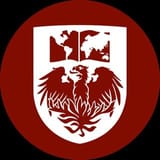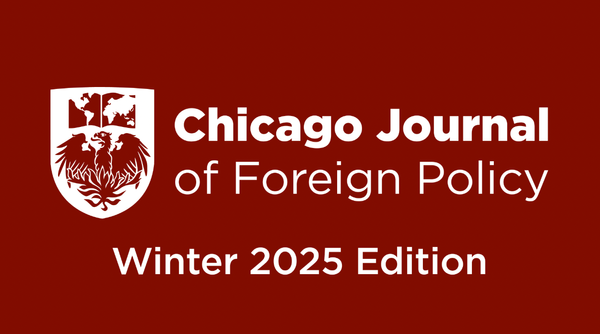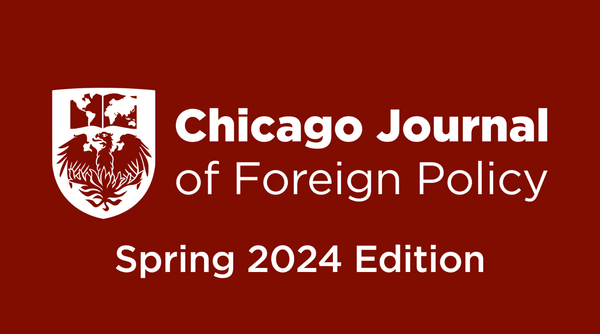Hezbollah's Presence in Latin America and its Threat to U.S. Domestic Security

By Arjan Sandhu, University of Chicago
Introduction
Hezbollah is a Lebanese Shi’a political party and paramilitary group that was formed in 1982 in response to the Israeli invasion of Lebanon.[1] The group was likely behind the 1983 truck bomb attack on the U.S. Marine Corps barracks at Beirut International Airport, which killed 241 service members. It was subsequently labeled a terrorist organization by more than 20 countries but continues to enjoy deep-rooted military alliances with the repressive anti-Israel regimes of Iran and Syria. The organization shares Iran’s goal of ridding the region of Western influence and establishing Islamic supremacy. While it is difficult to confirm exact figures, it is estimated that Iranian financial support for Hezbollah has ranged from $200 million to $700 million annually.[2]
Hezbollah’s Criminal Funding
In part due to Western sanctions on Iran, Hezbollah has long sought alternative sources of funds to support ongoing operations. Evidence suggests that Hezbollah expanded interactions with Colombian drug cartels in the early 2000s to facilitate money laundering and transport of cocaine to Africa and Europe.[3] Much of this was discovered due to increased U.S. surveillance of criminal activities throughout the world after the implementation of the Patriot Act in 2001.
Discovery
In 1992 and 1994, Hezbollah orchestrated bombings in Argentina, highlighting the group’s operational capabilities and raising concerns about its growing presence in the area. Investigations found that during the late 1990s, Hezbollah had established a presence in the region bordering Brazil, Argentina, and Paraguay, known as the Tri-Border Area (TBA) of South America. Hezbollah exploited the lack of security against smuggling, extortion, and drug trafficking and earned an estimated $20 million annually from their criminal network, making the TBA their most significant source of independent funding.[4] However, it was still only a small percentage of their total funding, which continued to be primarily from Iran.[5] Years later, the passage of the Patriot Act in 2001 expanded the authority of the DEA to pursue investigations throughout Latin America.[6]
In 2006, after this expansion of investigation capabilities, Colombian wiretaps uncovered conversations between drug cartel members in Arabic, leading the DEA to surmise that the foreign participant was a member of Hezbollah and was arranging multi-ton cocaine shipments to the Middle East.[7] In 2008, the DEA launched Project Cassandra, a multi-agency operation investigating and dismantling Hezbollah’s influence in South American narcotics trafficking.[8]
Project Cassandra
Project Cassandra was composed of both large and small joint-agency investigations from 2008 to 2014. Its sub-operations often worked alongside local governments and were aimed at neutralizing networks or seizing assets. Project Cassandra uncovered not only a complex network of cocaine and arms trafficking but also money laundering schemes generating millions of dollars for Hezbollah. The flow of narcotics was administered in the TBA of Brazil, Argentina, and Paraguay. It frequently consisted of multi-ton shipments of cocaine moving throughout Latin America with Hezbollah’s business affairs component operating at each step. The coca leaves, grown in Peru, Bolivia, and Colombia, were allegedly transported through Panama, Venezuela, and Guatemala to Europe and the United States using a myriad of smuggling techniques. Operatives worked alongside various middlemen, with the profits being strictly monitored and laundered back to Hezbollah. A prominent figure identified through a select command, Operation Titan, a DEA undertaking to expose money laundering alliances between Lebanese and Colombian crime groups, was Aryman Joumaa. Joumaa was a Lebanese launderer associated with the Colombian cartel La Oficina de Envigado and the Mexican cartel Los Zetas. Proceeds from the laundering activities were traced back to Colombia and Lebanon.[9]
Following these leads, Operation Titan culminated with 130 arrests and the seizure of $23 million, highlighting the scope of Hezbollah’s drug trafficking and money laundering network in Colombia and Venezuela. This led to the establishment and execution of Operation Cedar, a joint DEA-European operation that led to the arrest of prominent Hezbollah cells in Europe and the exposure of a multibillion-dollar global operation orchestrated by Hezbollah.[10] Project Cassandra allowed for Office of Foreign Assets Control (OFAC) criminal designations against twenty entities and ten individuals related to the Joumaa organization, including the money exchanges in Lebanon and Chekry Harb, a key money launderer who worked as a middleman between the Revolutionary Armed Forces of Colombia (FARC) and Hezbollah.[11]
Though the operation was relatively successful in exposing the vast network of money laundering and narcotics trading, it faced significant obstacles from the Obama Administration, and this likely prevented it from successfully taking down that network.
Obstacles for Project Cassandra
The Obama administration’s emphasis on securing a nuclear agreement with Iran created an environment that discouraged aggressive action against the proxies of Iran, primarily Hezbollah. This reality sidelined Project Cassandra, even as the evidence of Hezbollah’s involvement in drug trafficking mounted. Their increasing influence in the narcotics trade coincided with the administration’s strategic shift to prioritize diplomacy over law enforcement efforts. Agencies, including the CIA and the Department of Justice, were involved in defunding undercover operations and stalling potential prosecutions. A former Treasury official for the Obama administration, Katherine Bauer, confirmed during her testimony to the House Committee on Foreign Affairs in February 2017 that operations “were tamped down for fear of rocking the boat with Iran and jeopardizing the nuclear deal.”[12]
In 2017, under the Trump administration, the US Department of Justice created a task force to revive Project Cassandra's investigations into Hezbollah’s financial networks.[13] By October 2018, the Department of Justice designated Hezbollah a Transnational Criminal Organization, providing a legal framework for engaging in international cooperation to dismantle such networks.[14] Since then, Project Cassandra’s current task force has been active in attempting to dismantle Hezbollah’s influence in the region.
Future Direction
With the upcoming transition into the new presidential administration under Donald Trump and the recent ceasefire between Israel and Hezbollah, the future of Project Cassandra and Hezbollah’s drug trade is of significant interest. Given Israel’s successful destruction of much of Hezbollah’s operational structure in the Middle East and the impact of their military operation on Iran’s capacity to continue its financial support, it is highly likely that Hezbollah will elect to increase criminal financial activities outside of the region, such as in their Latin America operations. Indeed, hints at negotiations between President-Elect Trump and Venezuela’s Nicolas Maduro, primarily involving oil, migrants, and the narcotics trade, suggest that the next administration will have a renewed focus on all criminal activities in South America. This is fortunate, as there is a serious risk of underestimating Hezbollah’s capacity to recover its militant operations using their alternate revenue sources there. Moreover, they have already demonstrated their willingness to conduct terrorist operations in the Americas itself. Drugs such as synthetic opioids and amphetamines being trafficked across the border pose great risks to Americans of all demographics. The presence of multi-faceted terrorist organizations such as Hezbollah so close to the border poses risks of both trafficking and direct terrorism. Failure to appreciate this risk in light of the recent events in the Middle East ultimately threatens the domestic security of the United States and the rest of the world.
[1] “Hezbollah.” Wikipedia. Wikimedia Foundation. Accessed November 15, 2024. https://en.wikipedia.org/wiki/Hezbollah.
[2] Maltz, Derek S. “Attacking Hezbollah’s Financial Network: Policy Options.” Testimony before the House Committee on Foreign Affairs, United States House of Representatives, Washington, DC, June 8, 2017.
[3] Ottolenghi, Emanuele. "Hezbollah’s Cocaine Addiction." In The Laundromat: Hezbollah’s Money-Laundering and Drug-Trafficking Networks in Latin America, Perspectives Papers, no. 1501 (July 1, 2021). Begin-Sadat Center for Strategic Studies. Accessed November 20, 2024. https://www.jstor.org/stable/resrep34341.6.
[4] United States. Congress. House. Committee on Homeland Security. Subcommittee on Counterterrorism and Intelligence. Hezbollah in Latin America--Implications for U.S. Homeland Security: Hearing Before the Subcommittee on Counterterrorism and Intelligence of the Committee on Homeland Security, House of Representatives, One Hundred Twelfth Congress, First Session, July 7, 2011. Washington, DC: U.S. Government Publishing Office, 2012. https://www.govinfo.gov/content/pkg/CHRG-112hhrg72255/html/CHRG-112hhrg72255.htm#:~:text=Regardless%20of%20the%20circumstances%20which,%2DIsraeli%20propaganda%2C%20recruiting%20operatives%2C
[5] Ottolenghi, Emanuele. "Hezbollah’s Cocaine Addiction." In The Laundromat: Hezbollah’s Money-Laundering and Drug-Trafficking Networks in Latin America, Perspectives Papers, no. 1501 (July 1, 2021). Begin-Sadat Center for Strategic Studies. Accessed November 20, 2024. https://www.jstor.org/stable/resrep34341.6.
[6] Washington Institute. “John Fernandez: The DEA's Targeting of Hezbollah's Global Criminal Support Network.” YouTube video, 1:29:38. May 14, 2019. https://www.youtube.com/watch?v=4Y0vObuM77s.
[7] Ottolenghi, Emanuele. "Hezbollah’s Cocaine Addiction." In The Laundromat: Hezbollah’s Money-Laundering and Drug-Trafficking Networks in Latin America, Perspectives Papers, no. 1501 (July 1, 2021). Begin-Sadat Center for Strategic Studies. Accessed November 20, 2024. https://www.jstor.org/stable/resrep34341.6.
[8] VICE News. "How the US Failed to Take Down Narco-terrorism | The War on Drugs." YouTube video, 26:32. April 20, 2016. https://www.youtube.com/watch?v=6l796cTNGfg&t=2s.
[9] United States. Drug Enforcement Administration. "DEA Investigations Lead to Treasury 311 Patriot Act Designation Against Two Lebanese Money Exchange Businesses." DEA.gov, 23 Apr. 2013, www.dea.gov/press-releases/2013/04/23/dea-investigations-lead-treasury-311-patriot-act-designation-against.
[10] Ottolenghi, Emanuele. "The Laundromat: Hezbollah’s Money-Laundering and Drug-Trafficking Networks in Latin America." Perspectives Papers, no. 1501 (July 1, 2021). Begin-Sadat Center for Strategic Studies. pp. 43-47. Accessed November 20, 2024. https://www.jstor.org/stable/resrep34341.13.
[11] Maltz, Derek S. “Attacking Hezbollah’s Financial Network: Policy Options.” Testimony before the House Committee on Foreign Affairs, United States House of Representatives, Washington, DC, June 8, 2017.
[12] Bauer, Katherine. "Iran on Notice: Testimony Before the House Committee on Foreign Affairs.” February 16, 2017. https://www.documentcloud.org/documents/4329058-Katherine-Bauer-testimony-to-the-House-Committee.html.
[13] Ottolenghi, Emanuele. "Hezbollah’s Cocaine Addiction." In The Laundromat: Hezbollah’s Money-Laundering and Drug-Trafficking Networks in Latin America, Perspectives Papers, no. 1501 (July 1, 2021). Begin-Sadat Center for Strategic Studies. Accessed November 20, 2024. https://www.jstor.org/stable/resrep34341.6.
[14] S.Res. 299 (118th Congress) - A Resolution Expressing the Sense of the Senate That the United States Should Designate the entirety of Hizballah as a Foreign Terrorist Organization, Impose Sanctions on Those Who Materially Support Hizballah, and Hold Iran Accountable for Its Ongoing Support to Hizballah and Its Other Proxies." Congress.gov. Accessed Nov 5, 2024. https://www.congress.gov/118/bills/sres299/BILLS-118sres299is.htm.





